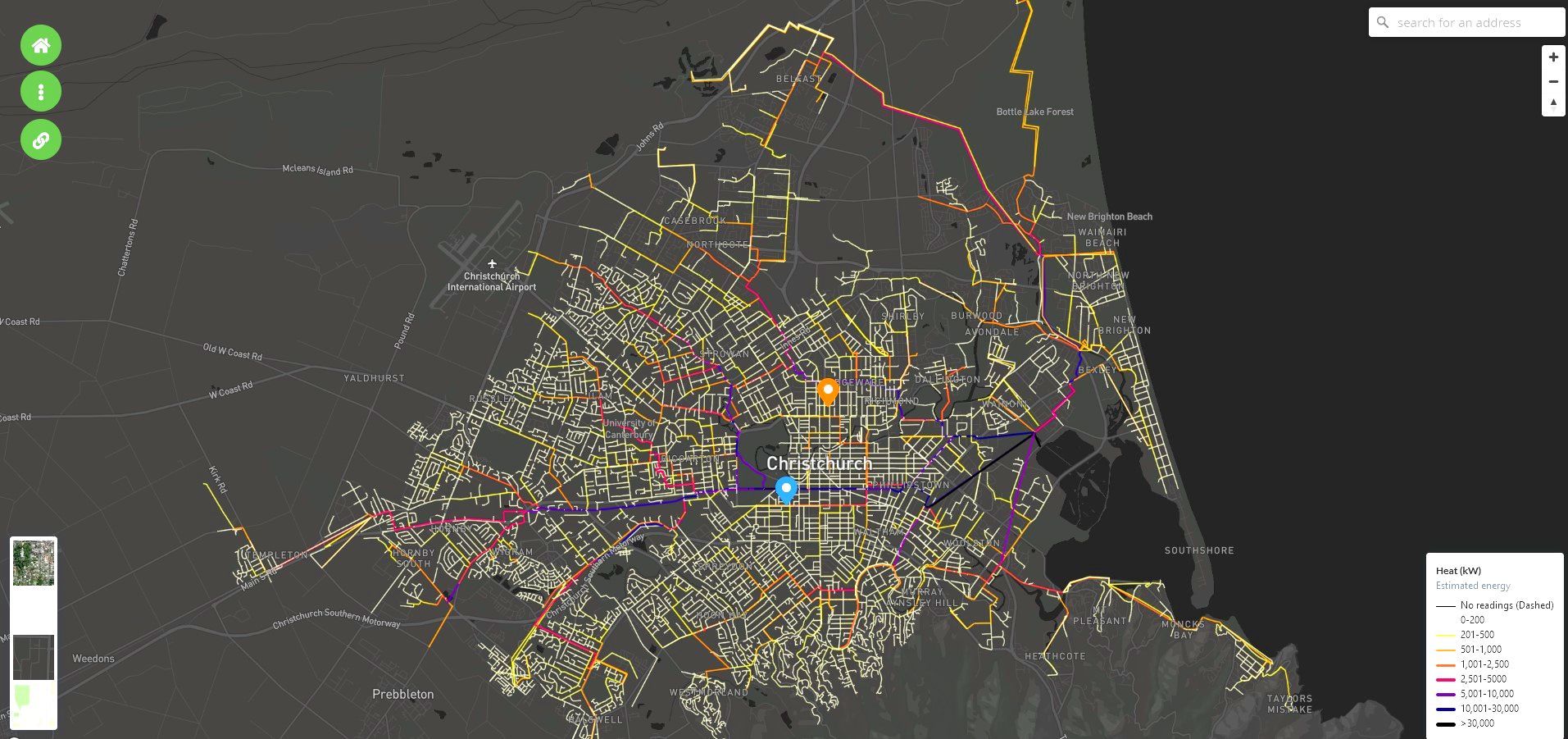The Business Case for Recycling Heat from Wastewater
Unlocking Profit + Sustainability
In the pursuit of sustainable and economically viable urban development, city authorities are increasingly turning to innovative solutions. One such solution that has gained traction in recent years is the recycling of heat from wastewater. This forward-thinking approach not only addresses environmental concerns but also proves to be a lucrative investment for city authorities. In this article, we delve into the reasons why recycling heat from wastewater is good business for city authorities.
Energy Efficiency
Recycling heat from wastewater is a prime example of harnessing energy that would otherwise go to waste. Wastewater from urban areas and industrial facilities carries a significant amount of thermal energy. This heat energy is all collected and contained within the sewer pipe network and the energy flows right through cities, where it can be used by the buildings located there. By capturing and utilizing this heat, cities can enhance their energy efficiency, reducing reliance on traditional energy sources and minimizing their carbon footprint. This not only aligns with sustainability goals but also results in long-term cost savings for city authorities.
Cost Savings & Revenue Generation
Cities that invest in heat recycling systems can benefit from substantial cost savings over time. By utilizing the captured wastewater heat for heating buildings, water, or other processes, city authorities can reduce their reliance on conventional heating methods. This, in turn, leads to lower energy bills and operational costs. Moreover, surplus heat from the wastewater flows can be sold back to businesses, creating an additional revenue stream for city authorities. The dual benefit of cost savings and revenue generation makes recycling heat from wastewater an economically attractive proposition.
Environmental Impact
Beyond the economic considerations, recycling heat from wastewater aligns with the global push towards sustainable practices. Traditional heating methods often involve the combustion of fossil fuels, contributing to air pollution and greenhouse gas emissions. By adopting heat recycling technologies, city authorities can significantly reduce their environmental impact, contributing to cleaner air and a healthier living environment for their residents. This environmental commitment can also enhance the city's reputation, attracting eco-conscious businesses and residents.
Job Creation & Economic Development
The implementation of heat recycling projects requires skilled labor for design, installation, and maintenance. As city authorities invest in these initiatives, they contribute to job creation and economic development within their community. Skilled professionals in engineering, technology, and maintenance are in demand, fostering a growing and sustainable job market. Additionally, the emergence of new technologies and services in the heat recycling sector can attract private investments, further boosting the local economy.
Future-Proofing Infrastructure
Investing in heat recycling technology is a strategic move for city authorities looking to future-proof their infrastructure. As the world transitions towards cleaner energy sources and more sustainable practices, cities that embrace heat recycling position themselves as leaders in innovation. This not only attracts environmentally conscious businesses and investors but also ensures that the city's infrastructure remains relevant and resilient in the face of evolving energy trends.
A Sustainable & Lucrative Path Forward with STEN
Recycling heat from wastewater is not just an environmentally responsible practice; it is a sound business decision for city authorities. The economic benefits, including cost savings, revenue generation, job creation, and enhanced infrastructure, make it a compelling investment. By prioritizing heat recycling initiatives, cities can achieve a harmonious balance between economic prosperity and environmental stewardship, setting a positive example for the future of urban development.
The
Sewer Thermal Energy Network
(STEN) is dedicated to helping municipalities and nonprofit institutions understand how sewer heat recycling works and how to unlock the potential profit as well as the sustainability factor.
As a member of STEN, you’ll join a group of the most influential professionals in the industry - leaders and decision makers who are working together to shape the future of
sewer heat recovery solutions. And you’ll have access to resources that will help you unlock the potential of this sustainable energy source.
We invite you to send a message to begin a conversation that will give you the answers you need.
STEN BLOG


LATEST NEWS
LATEST NEWS from STEN
-
STEN Holds First Quarterly Membership MeetingREAD MORE...
STEN is pleased to announce that we just held our first quarterly membership meeting Thursday, January 16...
-
STEN Announces Toledo Water Reclamation Department as Newest MemberREAD MORE...
The Sewer Thermal Energy Network is proud to announce that the Toledo Water Reclamation Department has joined its growing coalition of cities, municipalities, and utilities...
© 2023 All Rights Reserved SEWER THERMAL ENERGY NETWORK
